Open questions for the new year
From shady lawmaker dealings to the state of the university to the future of local policing, here are the questions I hope to explore in 2025.
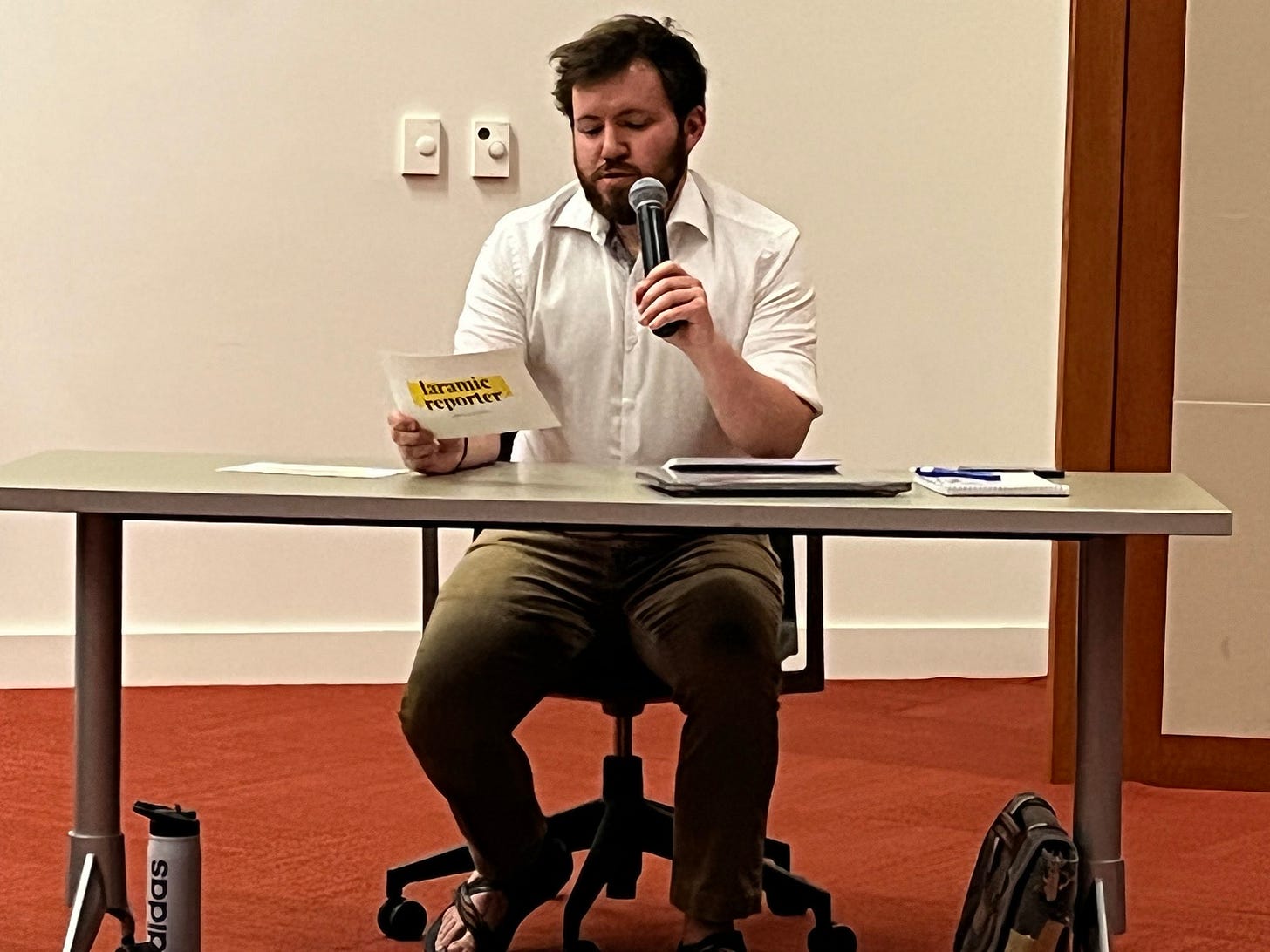
One of the joys of running the Laramie Reporter is knowing that the community trusts me.
I can disappear for up to a week, letting subscriber inboxes fallow, and no one freaks out. At this point, readers know my absence usually means I’m cooking something that will be worth the wait.
It takes time to fact check an anti-trans rally (and tie it’s “meme-ified fascist talking points” to a larger movement); it takes even more time to document efforts to question the election (and explore what those efforts portend for the future); it takes even more time still to highlight the plight of Laramie’s mobile home communities (and expose the greed at the heart of the problem).
These stories (and especially their parenthetical addendums) could not exist without the trust and patience readers have for my work.
The only downside to this slow, methodical approach to finding the story behind the story is that it sometimes takes quite a while to answer questions we’d prefer to have answered right away.
I’d like to take a moment, then, at the beginning of this new year, to highlight a few of the questions I’m still curious about. Keep these in mind the next time your inbox is yearning for a new drop from Laramie’s investigative reporter and take solace in the fact that I’m probably off working on one of them.
How much did lawmakers pay for favorable testimony — and did they break state lobbying laws?
There are three Wyoming politicians who could answer the first part of this question and one secretary of state who could answer the latter. But given the fact they blew off my attempts to ask them directly, it appears the politicians aren’t interested in sharing and Secretary Chuck Gray isn’t interested in investigating.
During the 2023 General Session, Senators Anthony Bouchard (R-Cheyenne), Dan Laursen (R-Powell) and Troy McKeown (R-Gillette) formed a nonprofit organization to pay for favorable testimony on a bill they wanted to pass. The bill would have banned gender-affirming care in the state of Wyoming and while it wasn’t successful in 2023, the same coalition of right-wing senators brought a similar bill in 2024 and got it passed on the second go.
In a report published by Wyoming Public Media and aired during an episode of its flagship program Open Spaces, I demonstrated that in 2023, the nonprofit — called the Senate Conservative Leadership Caucus — paid at least one national anti-trans activist to travel to Wyoming and give testimony in favor of the bill.

The nonprofit was formed in such a way that the senators were exempted from telling the IRS — and therefore the public — anything at all about their fundraising and spending. This lack of transparency was compounded by the fact that no one registered this anti-trans activist as a lobbyist. This could be a violation of state lobbying laws, which require individuals acting as lobbyists to register with the state. But I’m not a lawyer and I can’t say whether that is in fact a violation of state law.
The person I would ask is Secretary of State Chuck Gray. The person who would hold senators responsible for violating lobbying laws is Secretary of State Chuck Gray. The person who ignored my requests for an interview about the matter is Secretary of State Chuck Gray.
In the end, I shared what I had found with the public. But it sure would be nice to know how much our elected officials paid an out-of-state individual to provide favorable testimony on a bill they wanted to pass. If I run into Gray at the capitol this session, I’ll try to ask him. If you’re a reporter reading this, feel free to do the same.
Why did the University of Wyoming remove its provost?
UW President Ed Seidel’s abrupt removal of Provost Kevin Carman came as a surprise to most people on campus. Carman was not unpopular and even the communications announcing his ouster listed the achievements of his short tenure.
The university provided no public explanation and in the absence of official answers, whispers and rumors have flourished — none of which will be repeated by this outlet without verification.
UW has seen several high-level ousters in the last few years.
The university famously removed its previous president, Laurie Nichols, in 2019. A lengthy public records battle between Wyoming newspapers and the university eventually revealed the president had been investigated over allegations she had verbally abused employees.
Last year, a controversial dean removed celebrated division leaders in the College of Health Sciences, only to then be removed from his own post three months later. Earlier this year, another celebrated campus leader, former Diversity VP Zebadiah Hall, took a job out-of-state when his position was eliminated; former Student Affairs VP Kim Chestnut resigned in November.
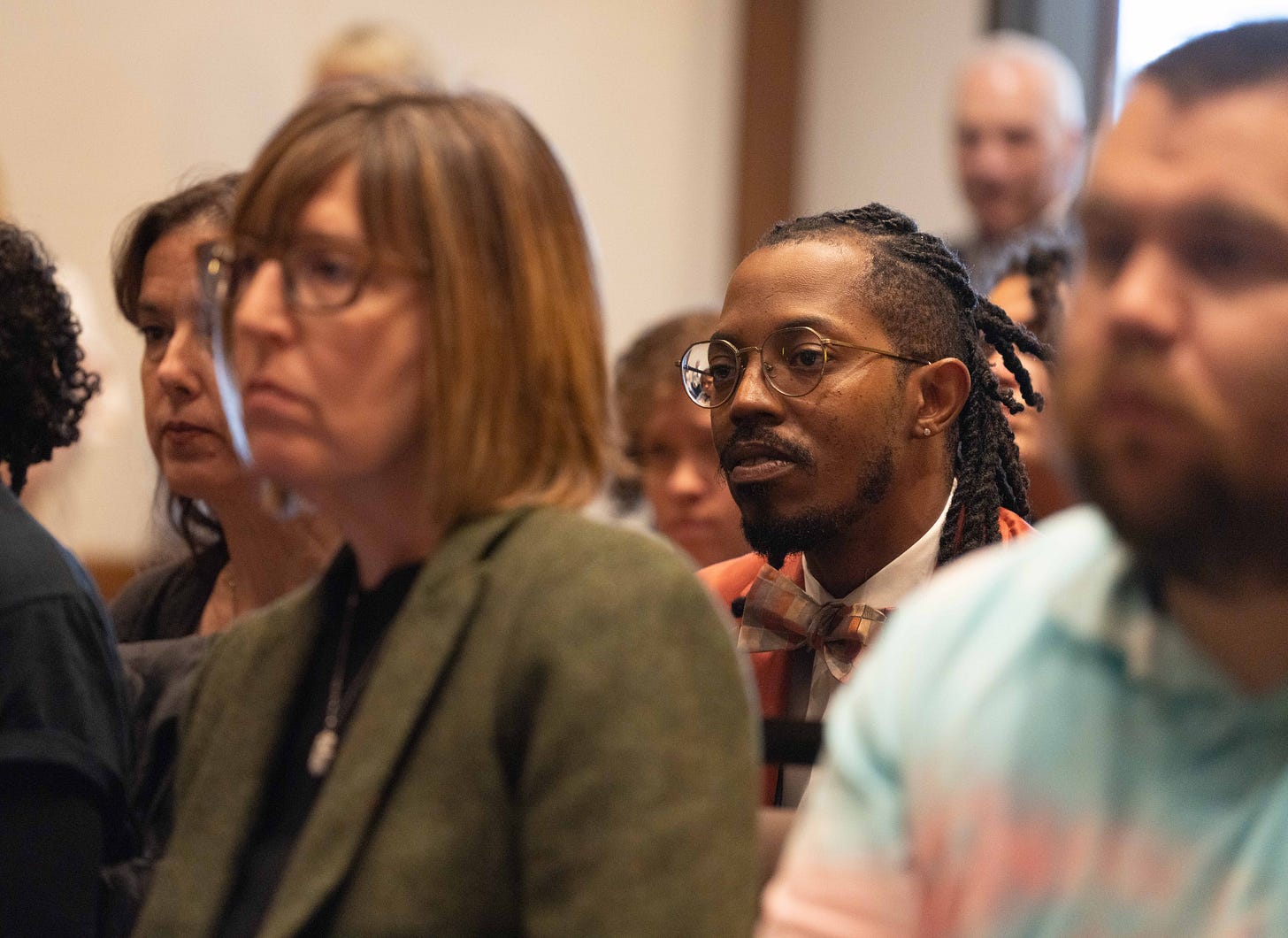
While these ousters aren’t necessarily related, the continual upheaval they represent has campus observers worried.
All the worse then, that these leadership woes should come amid a worrying time for the university itself.
What will the university look like this time next year?
The squabble in Health Sciences was about more than forced removals and an unpopular dean. The chaos grew out of competing visions for the future of the college.
While the dean himself is now gone — having accepted a job in North Dakota last month — it's unclear how much of his vision will remain. The battle itself has left scars on the college. The Wyoming Institute for Disabilities, for example, lost more than a long-time leader who propelled the institute to global recognition; it also lost at least a third of its employees to resignations in a very short time frame.
The College of Health Sciences isn’t the only corner of campus staring down big changes.
The university took aim at diversity, equity and inclusion efforts last year, axing the office that oversaw DEI programs and working to revamp campus resources that might be deemed “woke” by state lawmakers. UW had to cancel a popular summer institute in 2024 when the Black 14 pulled their support and involvement. Meanwhile, the university is pushing to enhance “free speech” on campus — even though most students do not feel there is any problem with the current protections.
There’s even more uncertainty on the horizon.
Should UW disallow concealed carry firearms in its campus buildings? Currently it does, and the UW Board of Trustees reaffirmed this policy at a contentious recent meeting. But lawmakers are looking to undo that policy and mandate gun-free zones at UW via legislation.
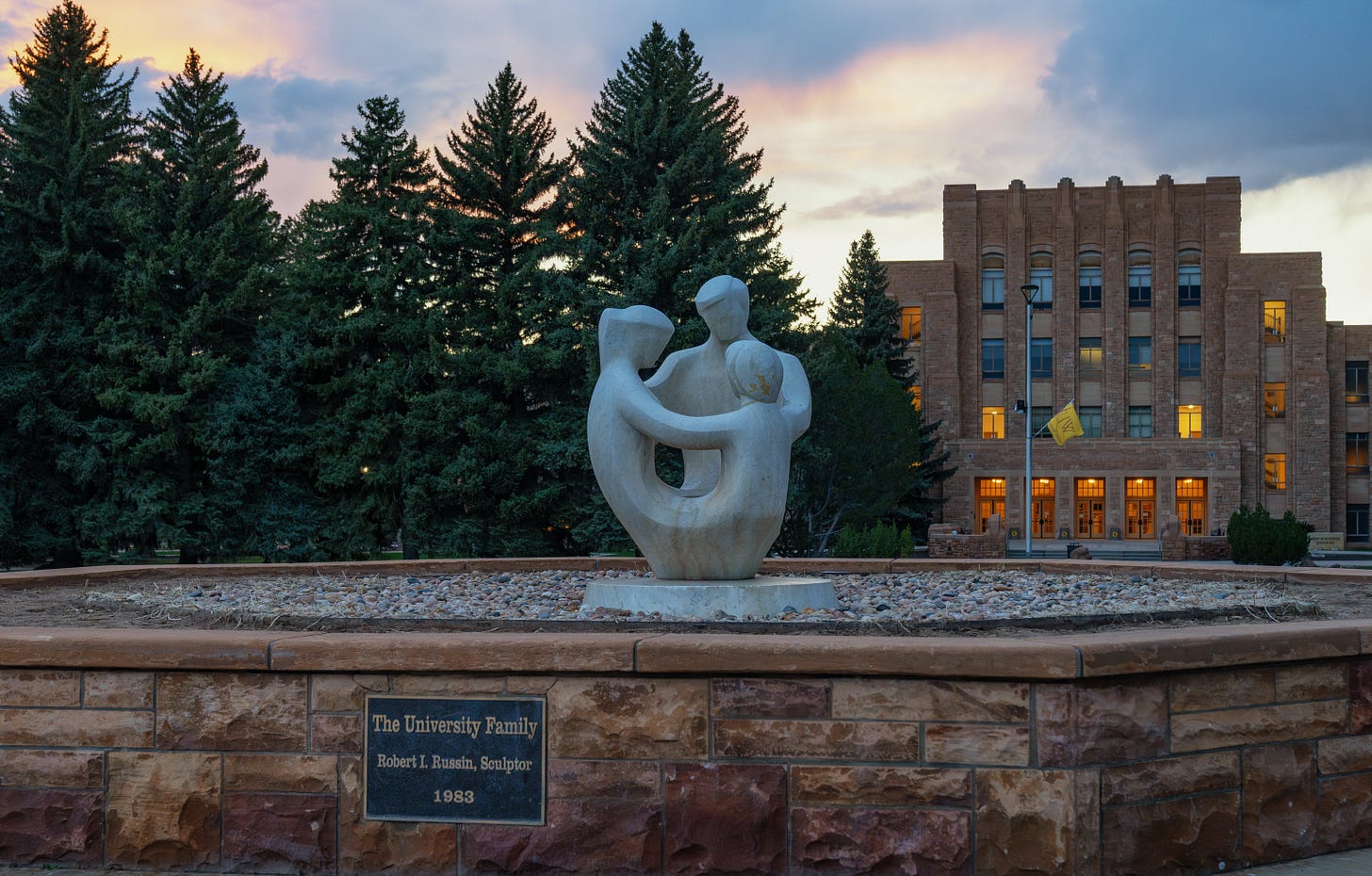
So open questions remain about UW leadership, the institution’s philosophical commitments, and the future of its weapons ban. And all of these questions are likely to intersect with UW’s most pressing concern: its plummeting student headcount, which has dropped 13% since 2018. The enrollment decline began before the pandemic and persists despite well-funded efforts to reverse it.
Some trustees, administrators and lawmakers have wondered aloud whether UW should bill itself as a conservative school, or perhaps a school that is fiercely committed to free speech, or whether either of these efforts have scared off potential students.
Here at the Reporter, I hope to keep exploring what these changes mean for UW and where ongoing debates about DEI, free speech, guns and more will lead the institution.
Will Derek Colling be decertified?
The echoes of a police shooting in 2018 continue to reverberate through the community.
In November of that year, then-Albany County Sheriff’s Deputy Derek Colling shot and killed an unarmed man, Robbie Ramirez. Colling already had a violent history and Ramirez was the third person he killed or had a hand in killing during his career as a law enforcement officer.
Colling was neither fired nor charged and was later promoted, leading to a public outcry that has dominated local discussions about police accountability and transparency.
Both the sheriff who hired Colling and the county attorney who declined to bring charges eventually resigned. Under the new sheriff, Colling resigned too.
But the effort to review Colling for decertification — an action that would keep him from working in law enforcement ever again — stalled out, revealing a loophole in state law that allowed officers to withhold psych evaluations and other personnel documents from the state agency tasked with determining their fitness for duty.
After Colling and Albany County officials blocked the release of the former deputy’s records in 2023, Provenza pushed a bill through the Wyoming Legislature closing the loophole. Except for Albany County Sheriff Aaron Appelhans, who testified in the bill’s favor, law enforcement officials resisted some key components of Provenza’s legislation. However, it passed unanimously in both chambers.
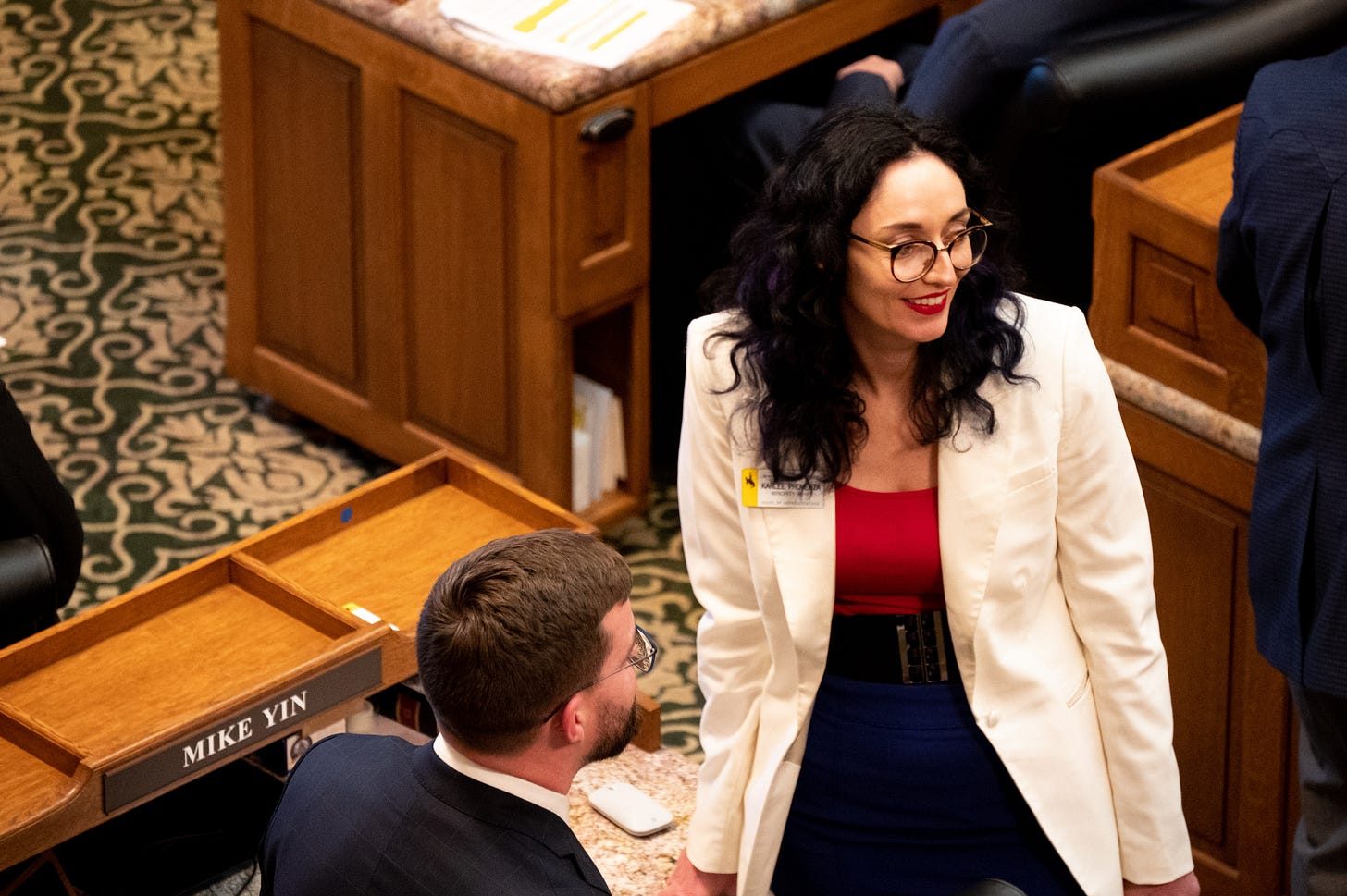
Despite this, the state agency investigating Colling for potential decertification still does not have the relevant personnel files. In court filings from last year, Albany County officials once again refused to release Colling’s records.
It’s not clear what happens next. Colling’s certification has expired. But without an official decertification, he will still be able to work in any law enforcement agency that would have him.
But what happens to Colling isn’t the only question remaining about the police and their relationship to transparency.
What will happen with police oversight?
Meanwhile, Laramie’s Police Advisory Board continues to meet. In the debates that sprang up in 2018 and 2020, a civilian advisory board was no one’s end goal. Yet it was the compromise that most parties agreed to — reluctantly but also hopefully.
On the one hand, the formation of an advisory board represents a concession to those who argued that police, even local Laramie police, needed more oversight than they have had. But the advisory board does not actually go all the way to providing “oversight” as popularly conceived. It has no real power over the police and serves more as a sounding board for the chief to communicate practices — or funding requests — to designated representatives of the public.
In theory, this board can foster better relationships between the police and civilians. As I covered the city council races last year, I asked candidates if they thought the advisory board was achieving its stated goal. They basically all said — one year and half a dozen meetings into the board’s history — it was too early to tell.
What do I think?
I try to stay out of community debates like this. I broadly believe in providing checks on power and I believe the police have a power that is often so normalized and so ever-present we don’t think of it as power.
But as a journalist, I’m also a transparency jihadist. I’d file a records request for the city council’s toenail clippings if I thought it was in the public interest and I had a lawyer willing to back me. So the fact that I think every minute of body cam footage should be keyword tagged and easily searchable in an online database — for not just the local police but every armed agent of the state — doesn’t really tell you anything about the opinions of the common man.
I think most people who aren’t outright abolitionists would like to see police who are slow to potentially lethal violence. (And for what it’s worth, our current chief is an advocate for martial arts training as a way to reduce officers’ reliance on guns.) Most people would like to feel safe. For some, “safety” means having a police presence at public events like the Laramie Jubilee Days street dance. For others, feeling safe would require a Jubilee Days free of concealed rooftop snipers or any ostentatiously displayed military vehicles.
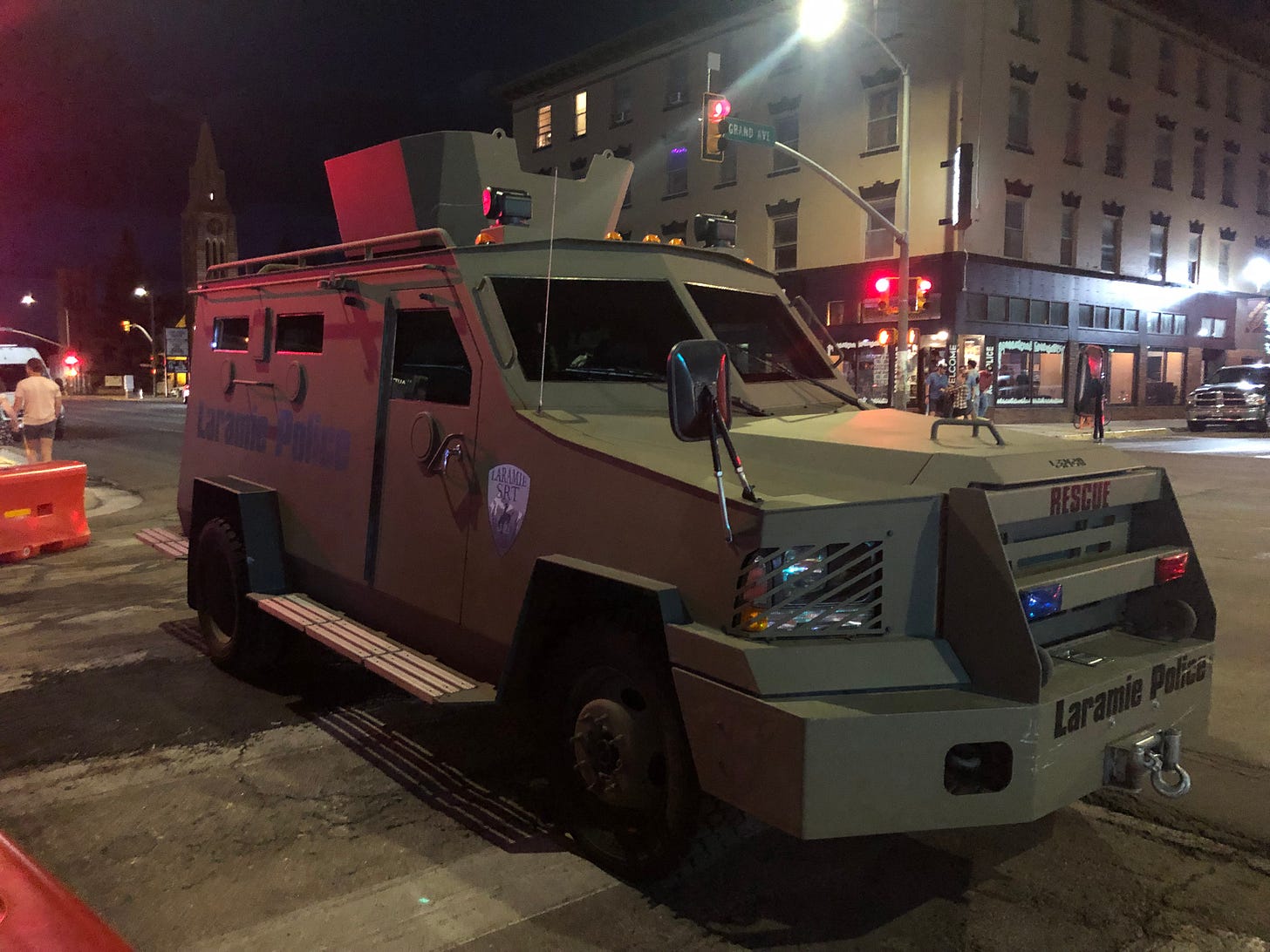
How do you balance those mutually exclusive interests? Well, that’s the question that remains.
For me, my concern is transparency. I’m a weirdo. I’m a proud Wyoming pacifist. I don’t really do guns, though many of the people I love do. If my community wants to be a gun culture and wants to have armed police to boot, I say, ‘Okay’ — but I’d like to be able to request the materials I need to hold that violent potential accountable.
Currently, public records requests for body cam footage are regularly denied unless those requests are coming from the people who appear in the footage.
This presents a significant difficulty for journalists. Yes, if I’m in contact with someone who feels they’ve been mistreated, they could request the footage and share it with me. But this isn’t always possible.
Often the people with the most terrifying tales of police encounters gone wrong are those least able to aid in a story like that. We’re talking about people who don’t have reliable places to sleep, people with mental illnesses that prevent them from doing a formal interview or keeping appointments, people with traumatic memories who can’t engage with the memory long enough to file a request of their own.
Maybe, out of respect for the public’s privacy, we should continue to restrict who can request body cam footage. But it would be nice if state law made some exception for journalists, who could review the footage and make responsible decisions about whether to proceed with a story.
Just a thought.
I don’t know what my community’s relationship with the police will look like next year — or five years from now. But I hope to cover not just the boards and the votes but the conversation.
This outlet has mapped, in detail, how the conversation evolved from chanting “Fuck Derek Colling” in the streets to compromising on a civilian advisory board. As the near future becomes the history of this town, I hope to keep covering whatever’s next.





Bravo, Jeff Victor!
Impressive and important questions.